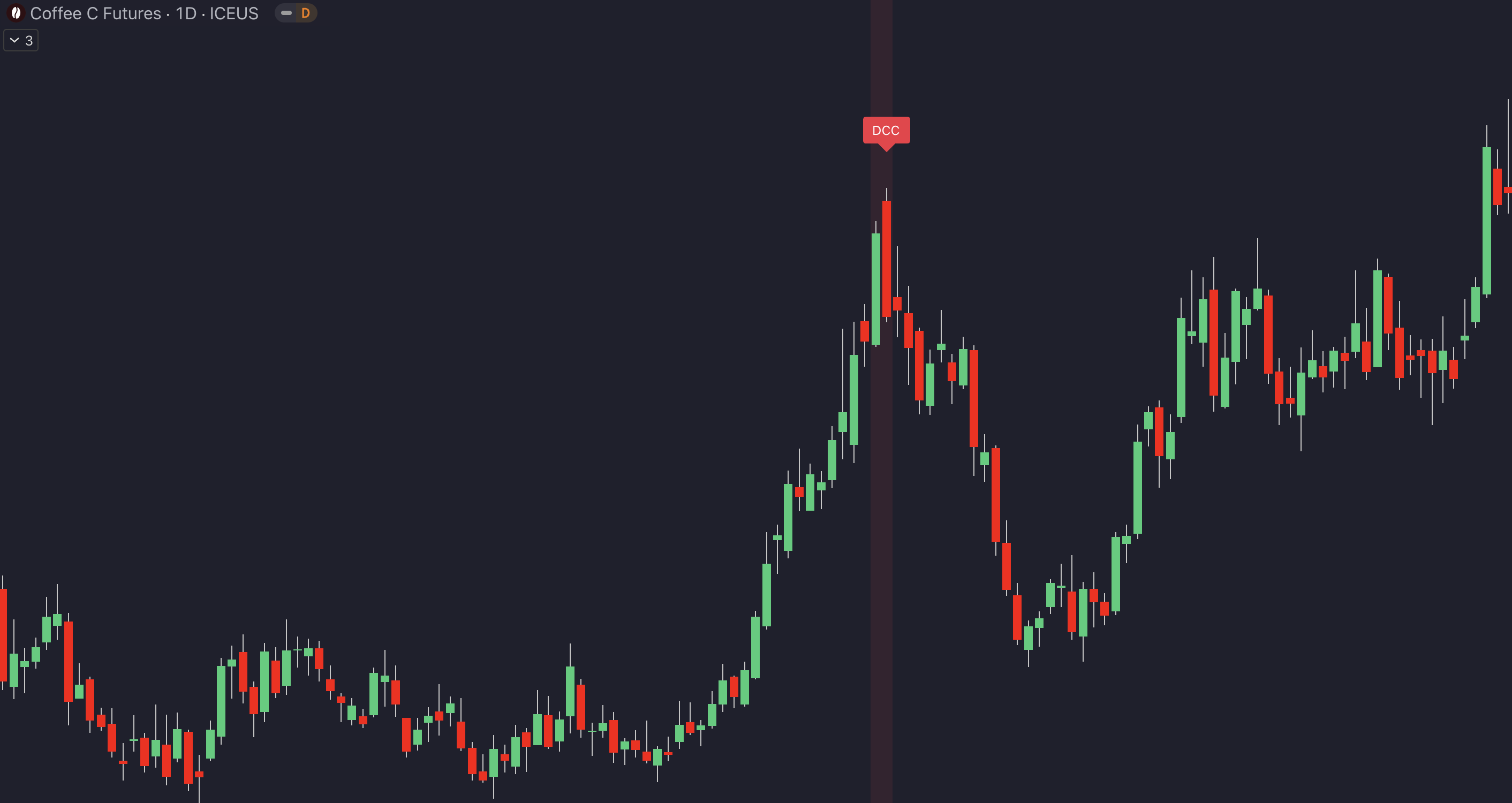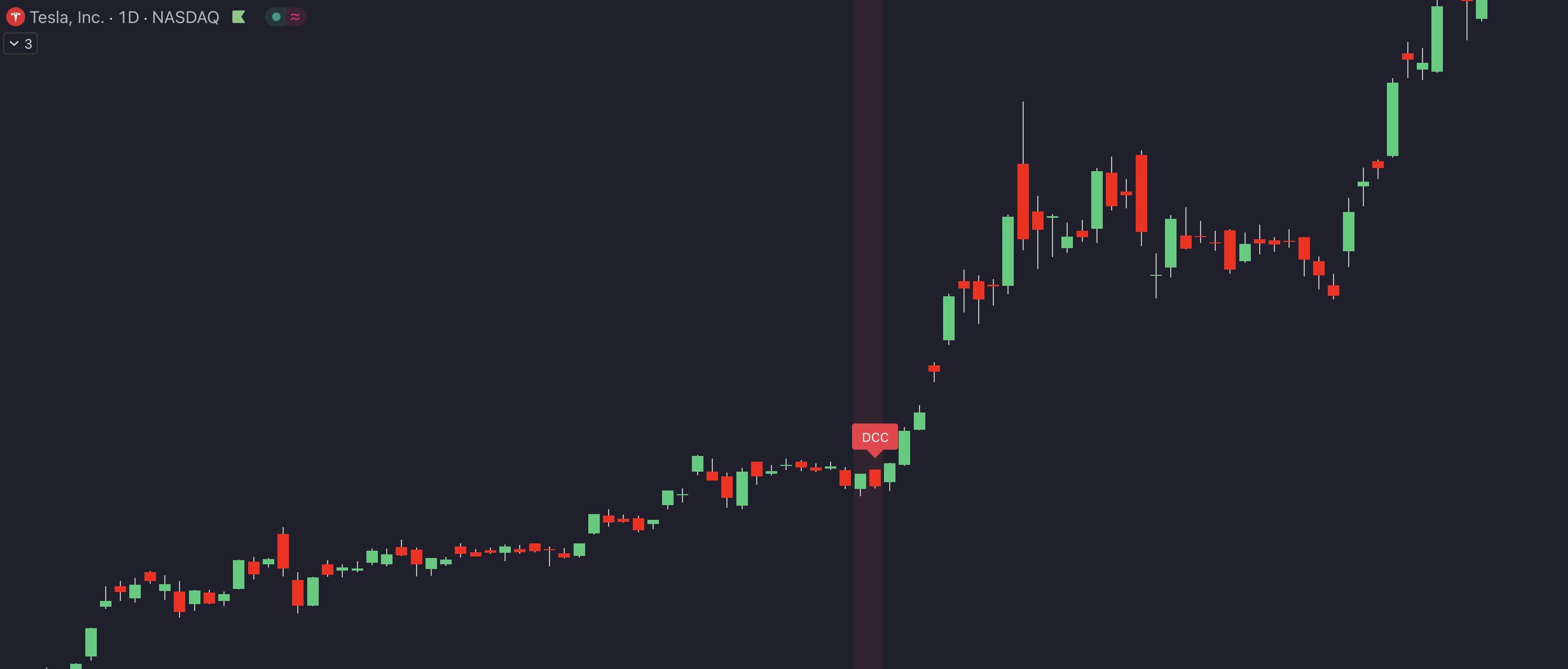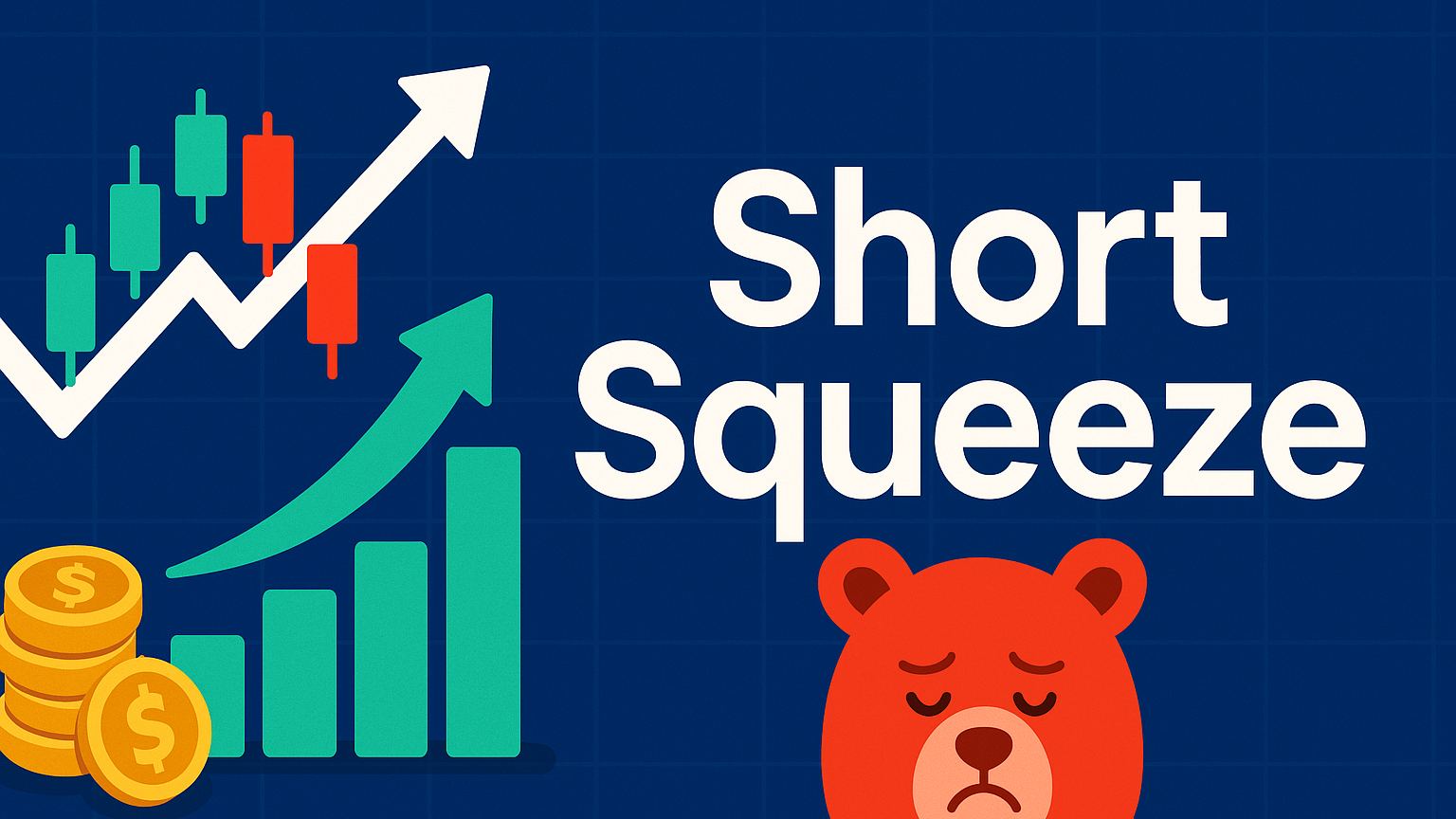Learn how the Dark Cloud Cover pattern signals potential market reversals and how to trade it effectively during uptrends.
Dark Cloud Cover is a two-candle bearish reversal pattern that signals a potential market downturn during an uptrend. It starts with a strong bullish candle, followed by a bearish candle that opens above the previous high but closes below the midpoint of the first candle. This pattern indicates sellers overtaking buyers, often predicting price reversals.

Key Takeaways:
- When It Appears: During a clear uptrend.
- Pattern Requirements:
- First candle: Bullish with a large body.
- Second candle: Opens above the first candle’s high and closes below its midpoint.
- Confirmation Signals: RSI > 70, increased volume, or support level breaks.
- Best Use Cases: Spotting reversals, managing risk, and timing short trades.
Pair this pattern with tools like RSI, MACD, and volume analysis for stronger trade setups. Always confirm with additional signals to improve reliability.
What is a Dark Cloud Cover and How to Trade It
Spotting Dark Cloud Cover Patterns
The Dark Cloud Cover pattern indicates a shift in market momentum from buyers to sellers during an uptrend. To identify it correctly, you need to understand its specific features and avoid common missteps.
Pattern Requirements
This pattern involves two candles:
- First candle: A strong bullish candle.
- Second candle: Opens above the high of the first but closes below its midpoint. Both candles should have large bodies with minimal shadows.
- A higher trading volume on the second candle adds credibility to the signal.
Common Pattern Mistakes
Even experienced traders can misinterpret this pattern. Here’s what to watch for:
- Misreading Market Context: The pattern must appear during a clear uptrend. Spotting it in sideways or choppy markets reduces its effectiveness.
- Incorrect Closing Price Analysis: Ensure the second candle closes below the midpoint of the first candle. If it doesn’t, you might be looking at a different pattern altogether.
| Pattern Feature | Valid Dark Cloud Cover | Invalid Formation |
|---|---|---|
| Prior Trend | Clear uptrend | Sideways or downtrend |
| Second Candle Open | Above first candle's high | At or below first candle's high |
| Second Candle Close | Below first candle's midpoint | Above first candle's midpoint |
| Candle Size | Large bodies, minimal shadows | Small bodies or long shadows |
- Ignoring Confirmation Signals: The pattern becomes more reliable when supported by additional indicators, such as:
- An RSI above 70, signaling overbought conditions.
- Increased trading volume on the second candle.
- A break below nearby support levels.
Reading Dark Cloud Cover Signals
Market Conditions
Dark Cloud Cover signals work best under certain market conditions. They hold more weight when they appear after a clear upward trend, rather than in markets moving sideways or with erratic price action.
Here are some key factors that enhance the reliability of this pattern:
- Strong Uptrend Before Formation: The signal becomes more meaningful if it follows a notable price rally, particularly near resistance levels.
- Trading Volume: A bearish candle with higher trading volume indicates stronger selling pressure and trader commitment.
- Market Volatility: While the pattern can emerge during volatile times, excessive price swings may lead to unreliable signals.
| Market Environment | Signal Reliability | Key Considerations |
|---|---|---|
| Strong Uptrend | High | Watch for overbought conditions and resistance zones |
| Choppy Market | Low | Increased likelihood of false signals |
| High Volume | High | Confirms stronger selling activity |
| Low Volume | Medium | May signal a weaker reversal |
Once the market conditions align, it's important to dig deeper into the pattern's quality to confirm its bearish implications.
Signal Quality Factors
After confirming the right market environment, evaluate the following elements to gauge the strength of the Dark Cloud Cover signal:
Location and Context
- Patterns forming near major resistance levels are more likely to attract attention from traders.
- Signals appearing at key price points carry greater importance and may prompt stronger reactions.
Technical Confirmation
- Look for an RSI above 70 combined with a break below key support levels or a moving average crossover to validate a potential reversal.
- Divergence in the MACD often signals weakening upward momentum, further supporting the bearish case.
Candle Characteristics
- A deeper penetration into the first candle's body shows stronger selling pressure.
- A close near the low of the second candle suggests sellers dominated the session.
- Minimal lower shadows indicate sustained control by sellers throughout the trading period.
Trading with Dark Cloud Cover
Once you've spotted a Dark Cloud Cover pattern, you can refine your trading approach using these trade setups, risk management tips, and confirmation techniques.
Trade Setup Rules
When a Dark Cloud Cover emerges during a strong uptrend, consider entering a short position either at the close of the bearish candle or at the next session's open. Aim for the nearest support level to maintain a risk-reward ratio of at least 1:2.
| Trade Component | Setup Details |
|---|---|
| Entry Point | Bearish candle close or next session open |
| Initial Target | Nearest support level |
| Pattern Location | After a strong upward trend |
| Volume Requirement | Increasing volume on the bearish candle |
Risk Control Methods
Once you've set your entry and target, manage your risk effectively with these steps:
- Limit your risk to 1-2% of your total trading capital.
- Set a stop-loss just above the high of the bearish candle.
For example, on a daily XAUUSD chart, a stop-loss was placed above the bearish candle's high. The target was set at the nearest support level, and the trade was confirmed when the price dropped below the VWAP.
Supporting Indicators
Boost the reliability of the Dark Cloud Cover pattern by using these technical indicators:
- RSI: Look for values above 70 before the pattern forms.
- MACD: Check for bearish crossovers of the signal line.
- Volume: Ensure the bearish candle shows increasing volume.
For instance, on a USDCHF daily chart, a Dark Cloud Cover pattern appeared at the peak of a Head and Shoulders formation. The setup gained additional confirmation when the price broke below the neckline at 1.2359. Traders targeted 1.1998 as the price retraced before forming bullish reversal patterns.
Winning Trades
On the COFFEE daily chart, a textbook Dark Cloud Cover appeared. The second candle closed well below the midpoint of the first candle, signaling strong selling pressure near resistance levels.

Another example comes from the USDCHF daily chart. A Dark Cloud Cover formed at the peak of a Head and Shoulders pattern. This setup was confirmed by a neckline break at 1.2359, bearish engulfing candles, and a successful price drop to the target at 1.1998.
Failed Patterns
Tesla (NASDAQ: TSLA) demonstrated how a Dark Cloud Cover can produce a false signal. The pattern didn’t succeed here due to several reasons:
- No confirmation candle followed the initial setup.
- The broader uptrend remained intact.
- Volume failed to support the reversal signal.

Interestingly, a later Tesla chart showed a successful Dark Cloud Cover pattern. This time, confirmation came from a bearish candle that followed the formation.
These cases highlight the importance of waiting for additional confirmation before acting. While this cautious approach might reduce some potential gains, it dramatically increases the dependability of the signal.
Summary
The Dark Cloud Cover pattern indicates a potential bearish reversal when identified correctly. It features a bullish candle followed by a bearish candle that opens above the previous high and closes below the midpoint of the first candle.
Pay attention to this pattern near resistance levels or after sharp price rallies for better reliability. A rise in trading volume adds weight to the signal.
| Component | Requirements | Risk Control |
|---|---|---|
| Pattern | Uptrend, gap up | Stop above high |
| Confirmation | Price break, indicators | Support targets |
| Volume | Higher selling activity | Risk-reward ratio |
For more precise results, combine this pattern with tools like MACD, RSI, and volume analysis. Evaluating support and resistance levels helps pinpoint entry and exit points effectively.
While the Dark Cloud Cover is a reliable signal, it is generally considered less decisive than the Bearish Engulfing pattern. Success relies on strong confirmation and disciplined risk management to execute trades efficiently.






